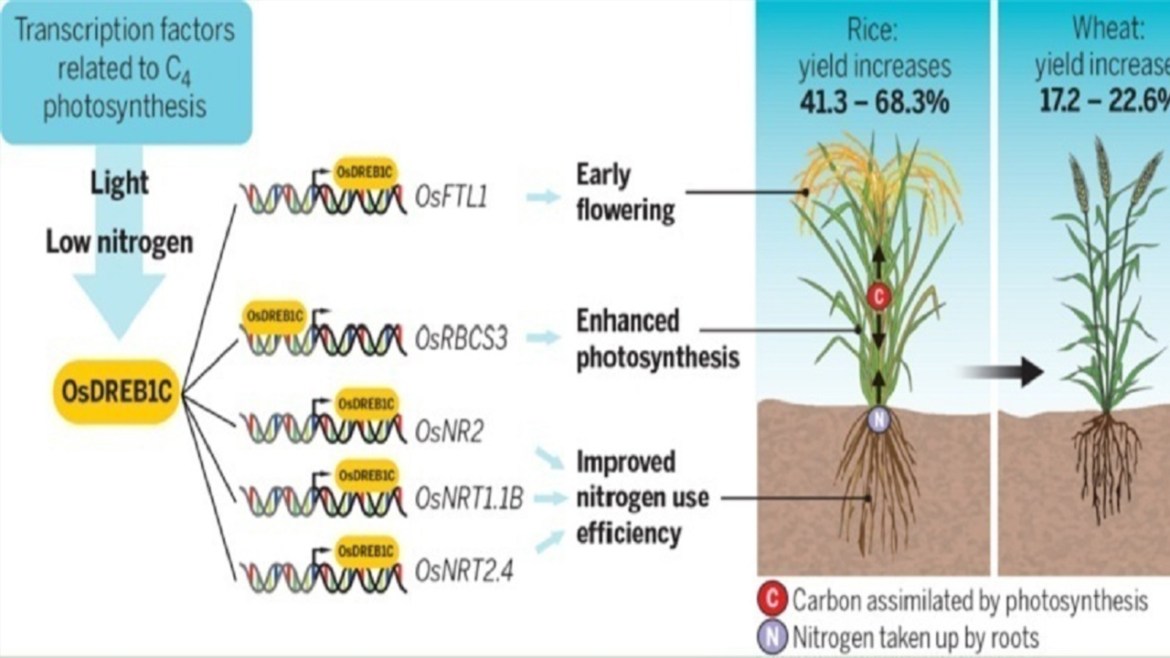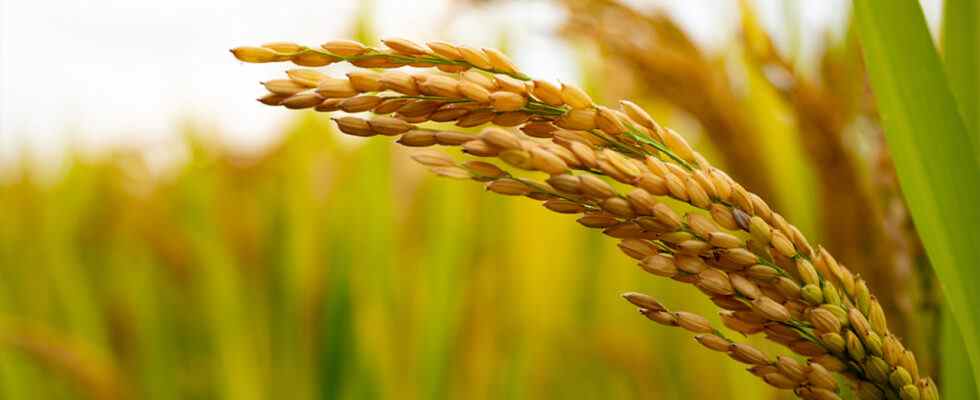Chinese scientists have found a gene that has the potential to boost the efficiency of photosynthesis and nitrogen use in crops such as rice and wheat, and significantly increase grain yield. The scientists who made the discovery believe that the gene could play a critical role in increasing agricultural productivity and using resources more efficiently, and most importantly, contributing to food security.
Gene to increase grain yield created excitement
The discovery, developed by a team led by researchers from the Crop Sciences Institute of the Chinese Academy of Agricultural Sciences (CAAS), was published in the academic journal Science on Friday, Beijing Time.
Zhou Wenbin, leader of the research team, said that since the 1960s, there has been a significant increase in crop productivity through the cultivation of new varieties and the development of breeding and management technologies. He also added that the unit area yield of crops has gradually increased in recent years.
Wenbin used the following statements on the subject;
We need to find new ways to coordinate further improvement of crop yield and nitrogen use efficiency.
At this point, it was found that corn has a much higher yield than rice and wheat due to different photosynthesis pathways.

The research team examined 118 transcription factors associated with photosynthesis in maize and analyzed related genes in rice with similar sequences. They finally identified the key gene OsDREB1C, which responds to both light and low nitrogen conditions, and thus found that the gene modulates both photosynthesis and nitrogen utilization.
While the researchers developed the OsDREB1C gene in two rice cultivars using genetic engineering technology, they conducted field trials in three different regions—Beijing, Hangzhou, and Sanya—from 2018 to 2022. The results are quite surprising. Because the yield of both rice varieties increased by more than 30 percent and their growing period was shortened.
In addition, in an experiment on a wheat variety, it was observed that the OsDREB1C gene increased productivity by more than 17 percent and shortened the growth period in the range of three to six days. As a result, the studies revealed that the related gene has the function of increasing yield and shortening the growth period.
So what do you think about this subject? Do not forget to share your views with us in the comments section!

